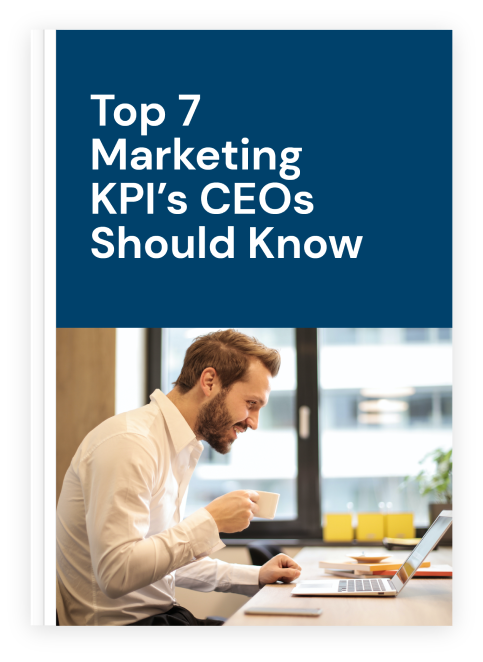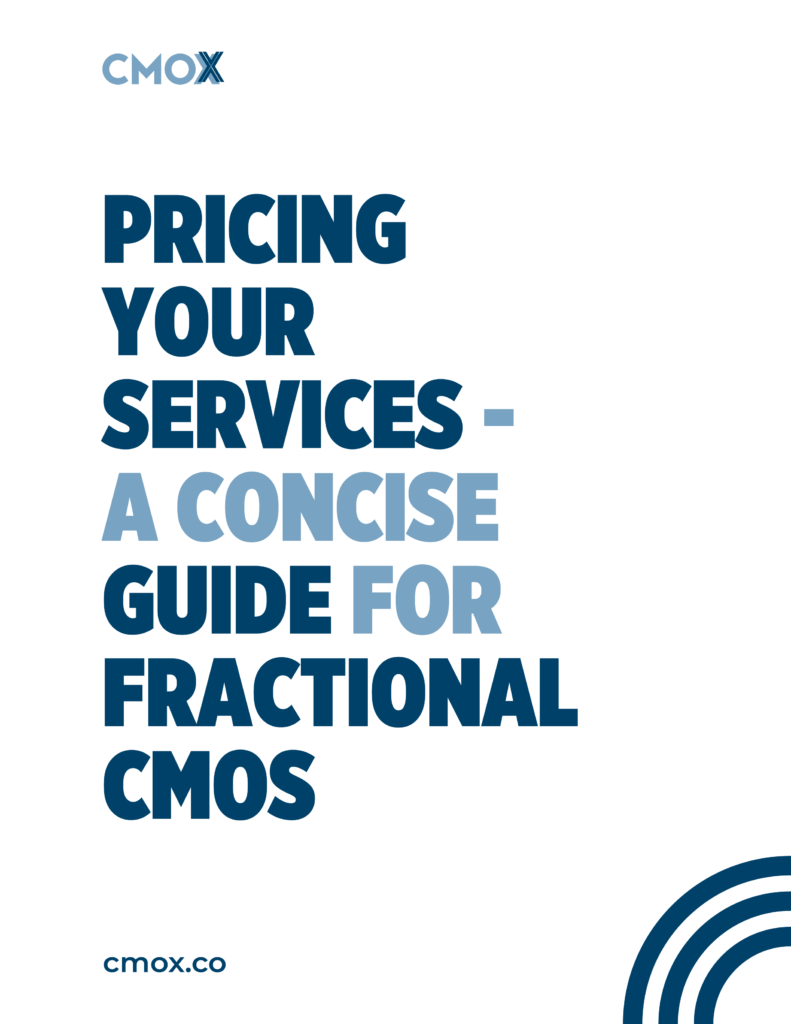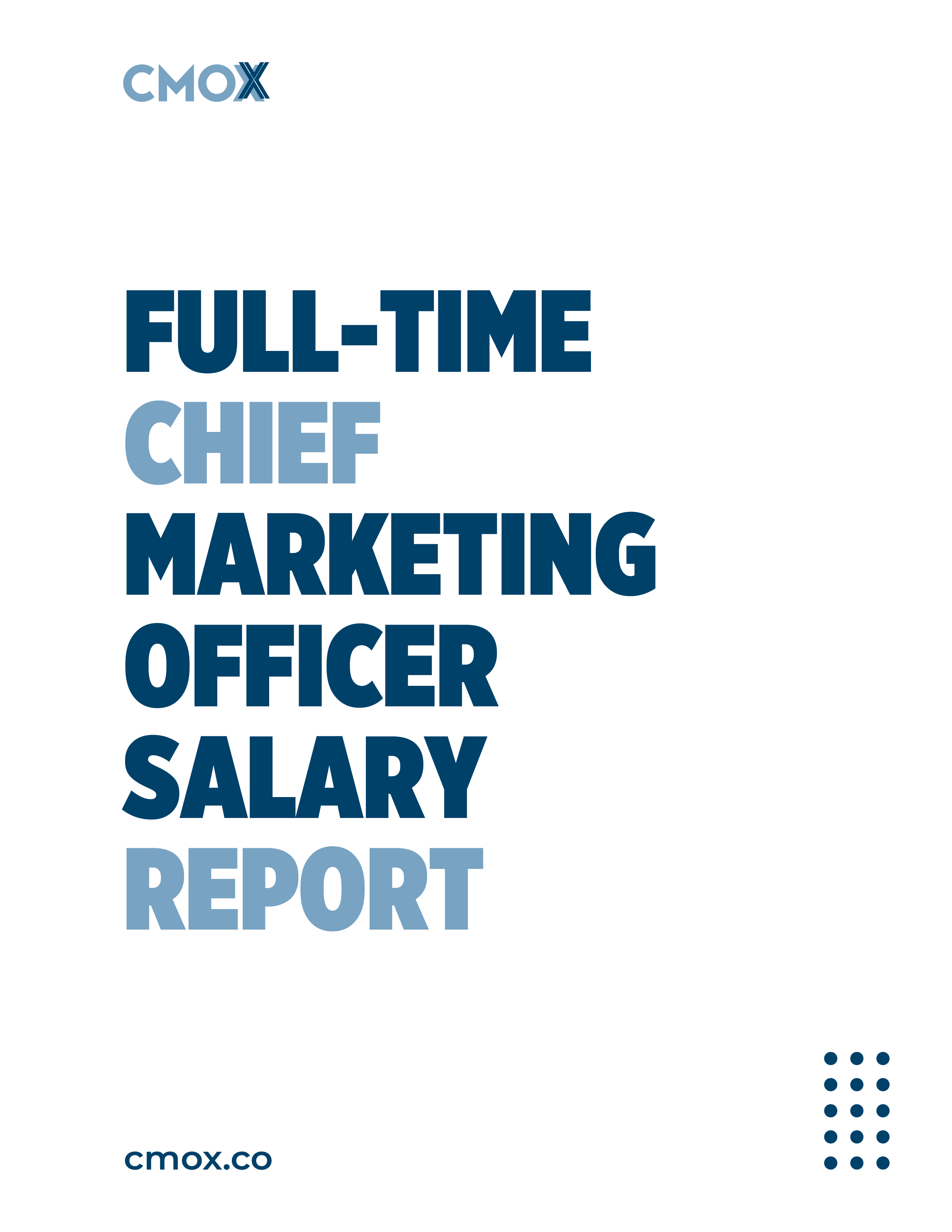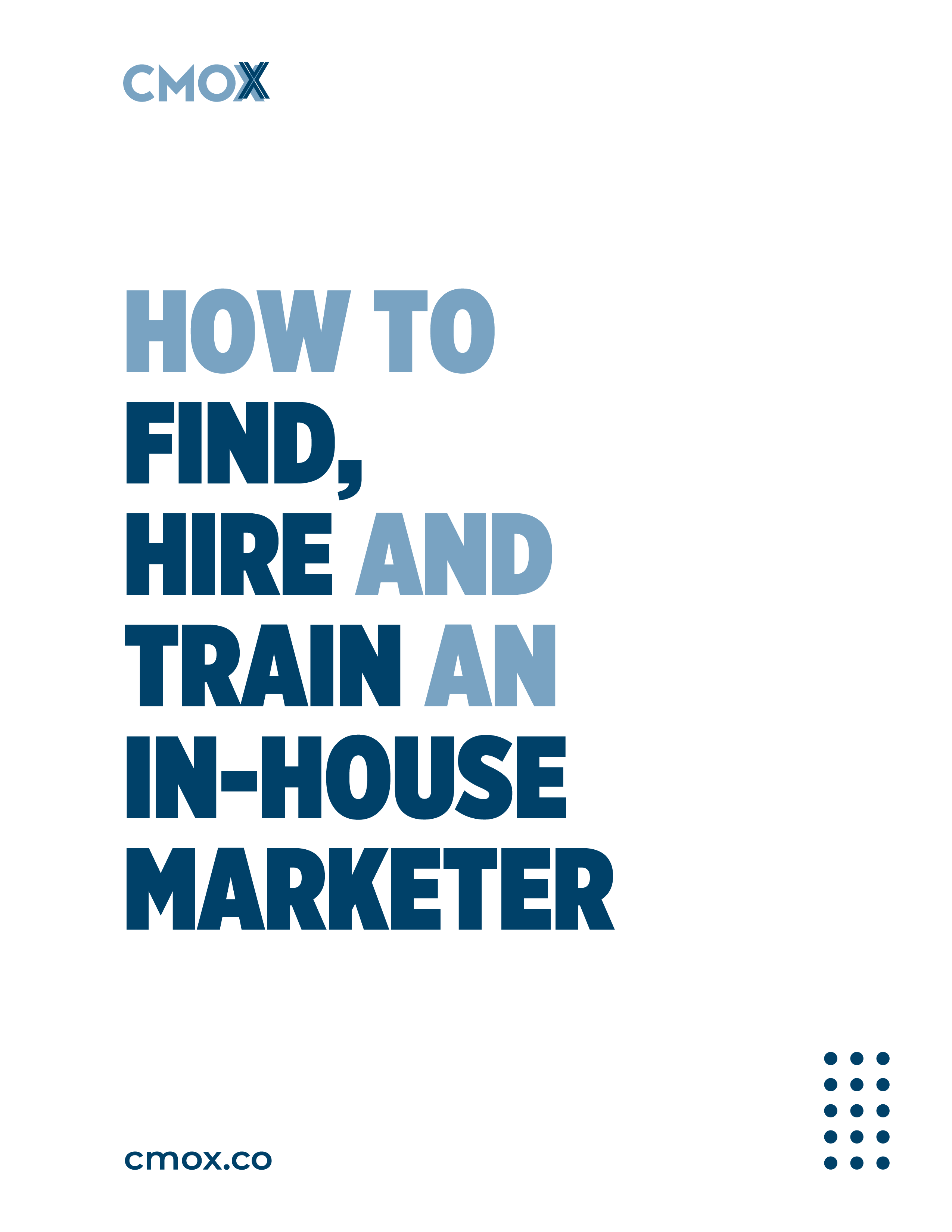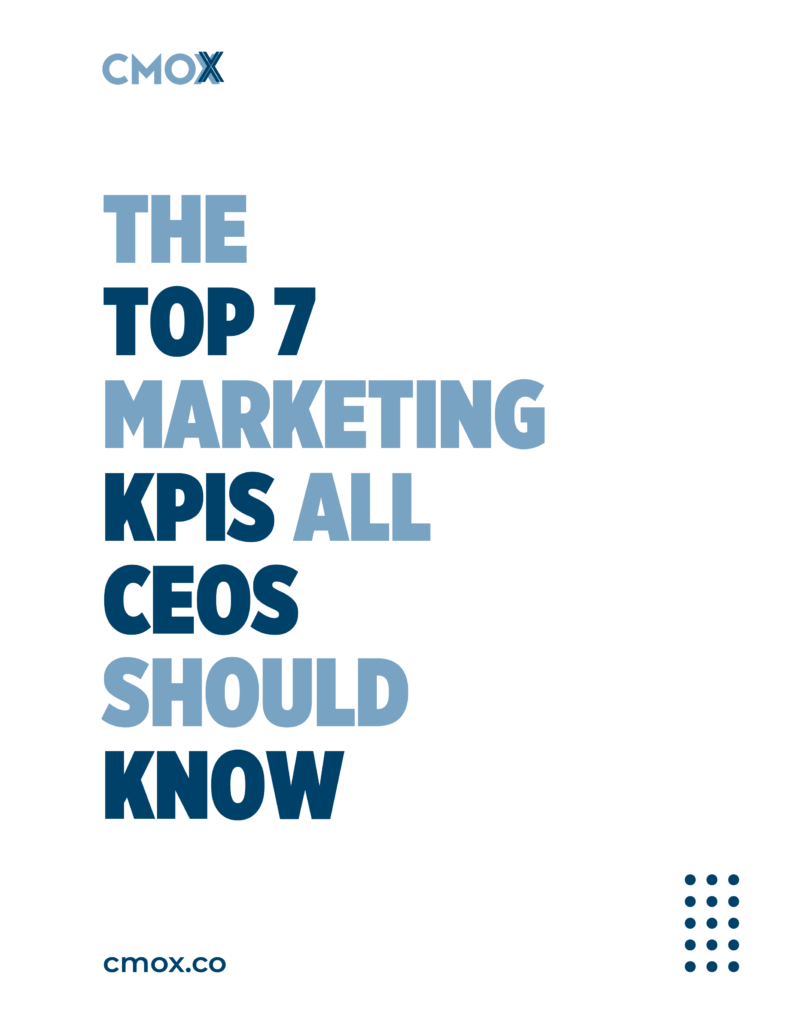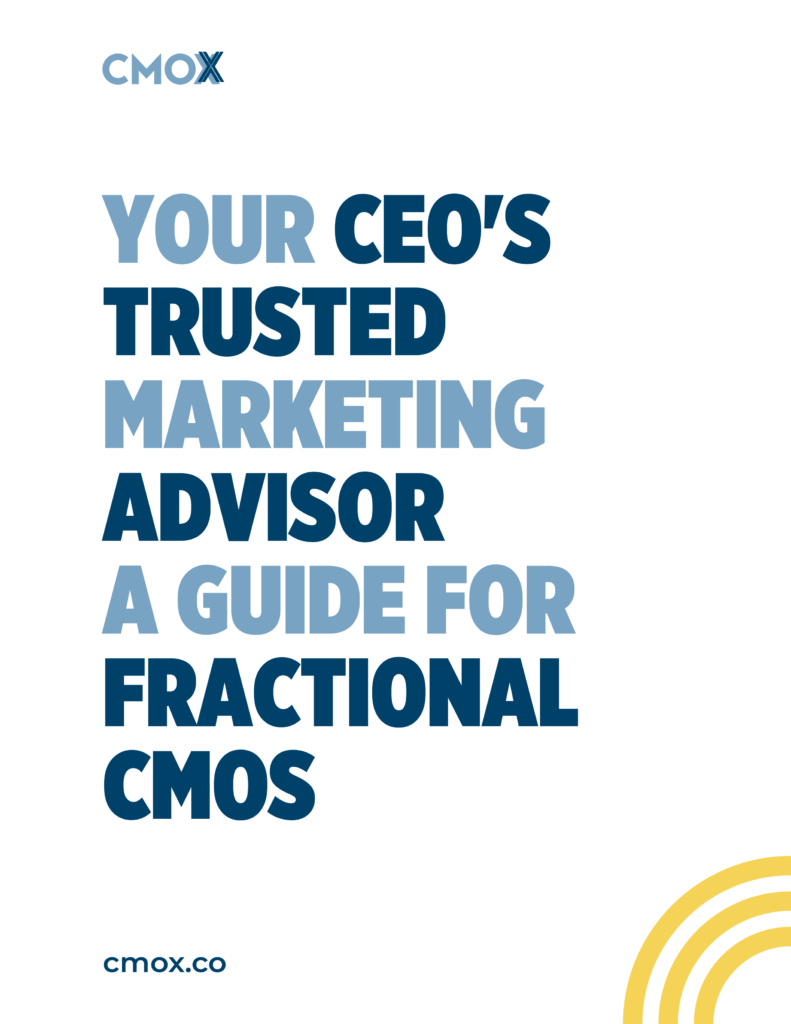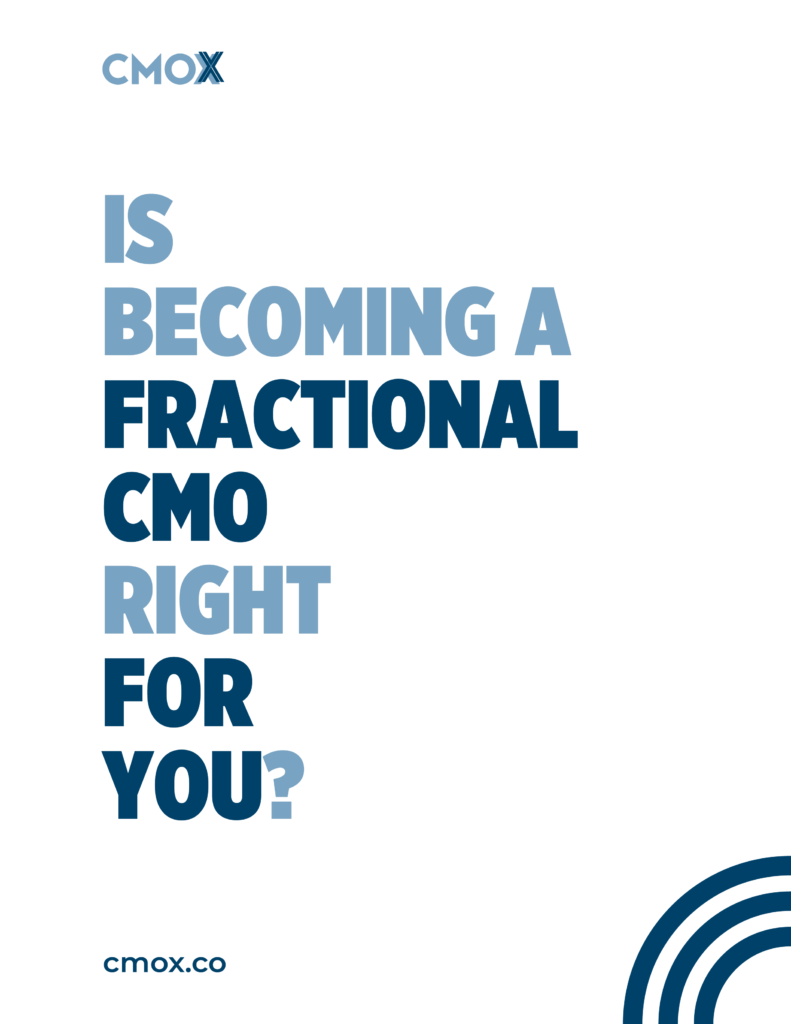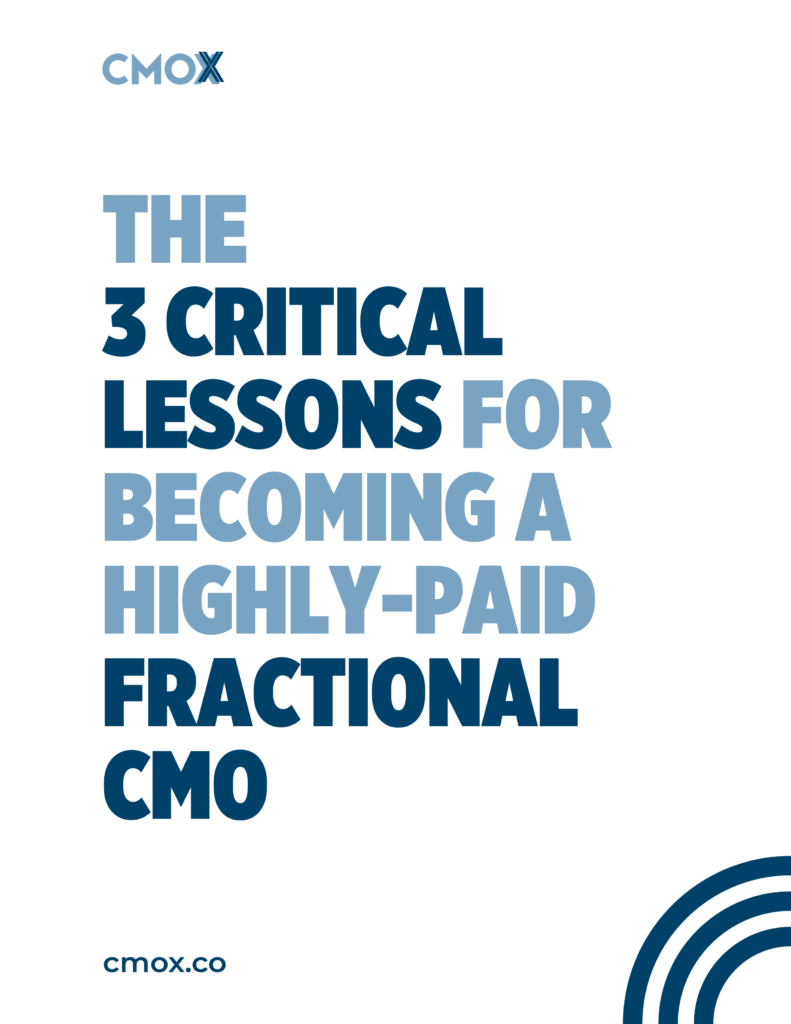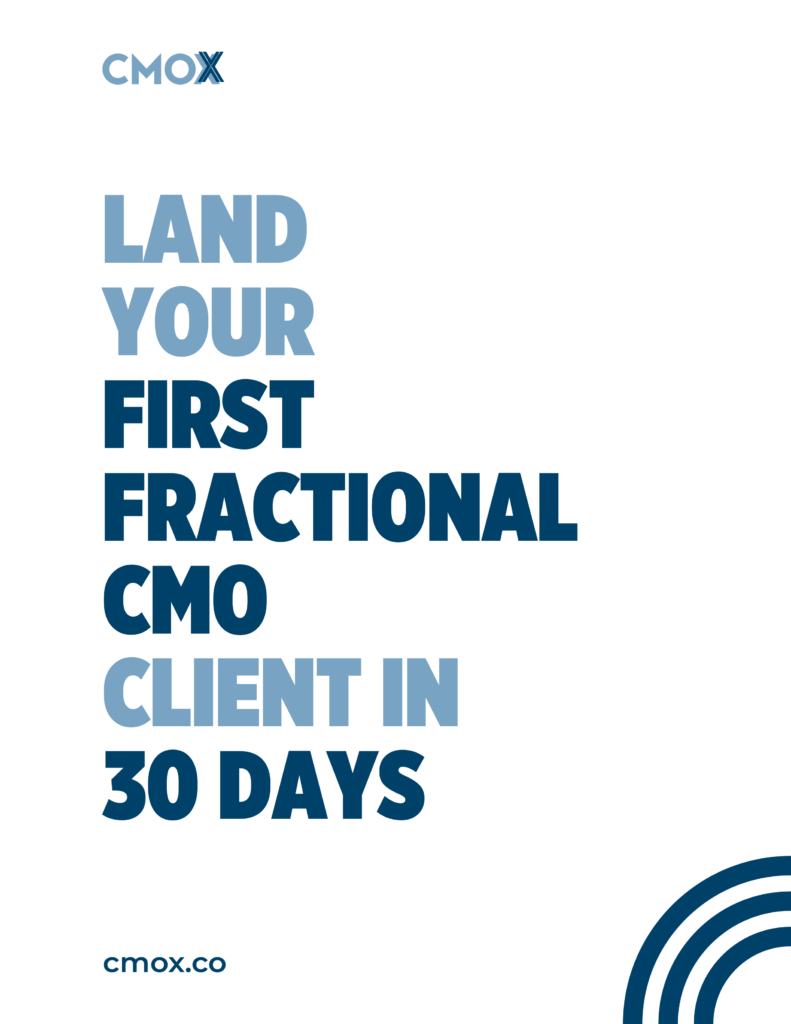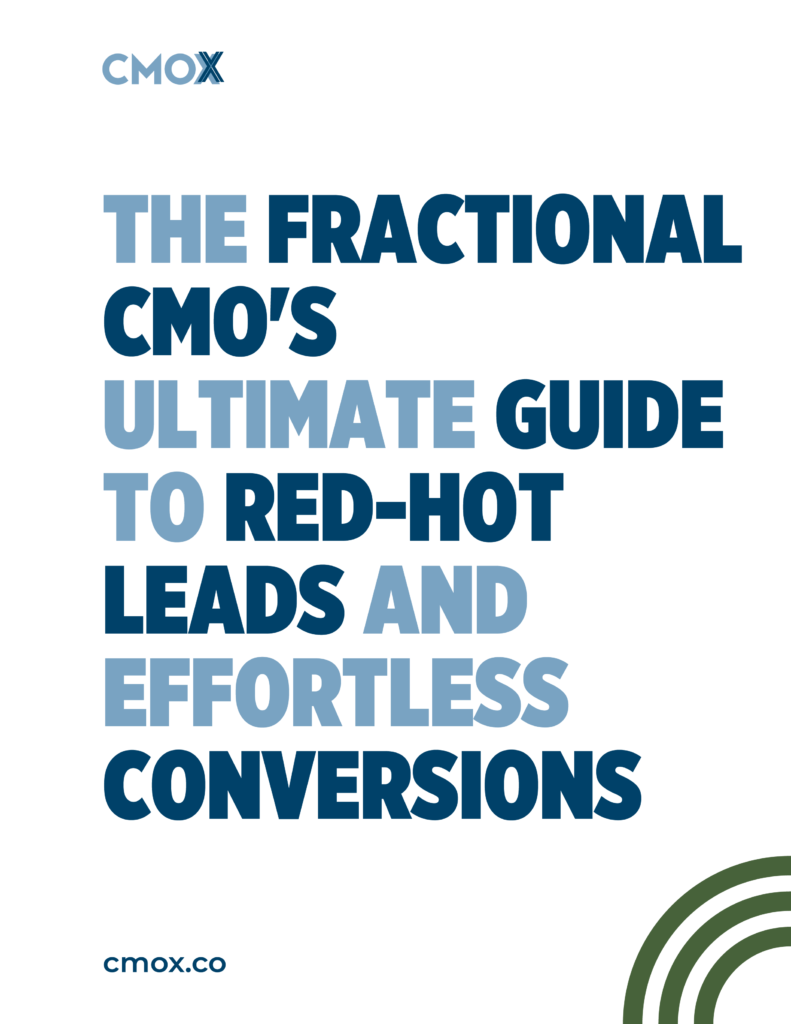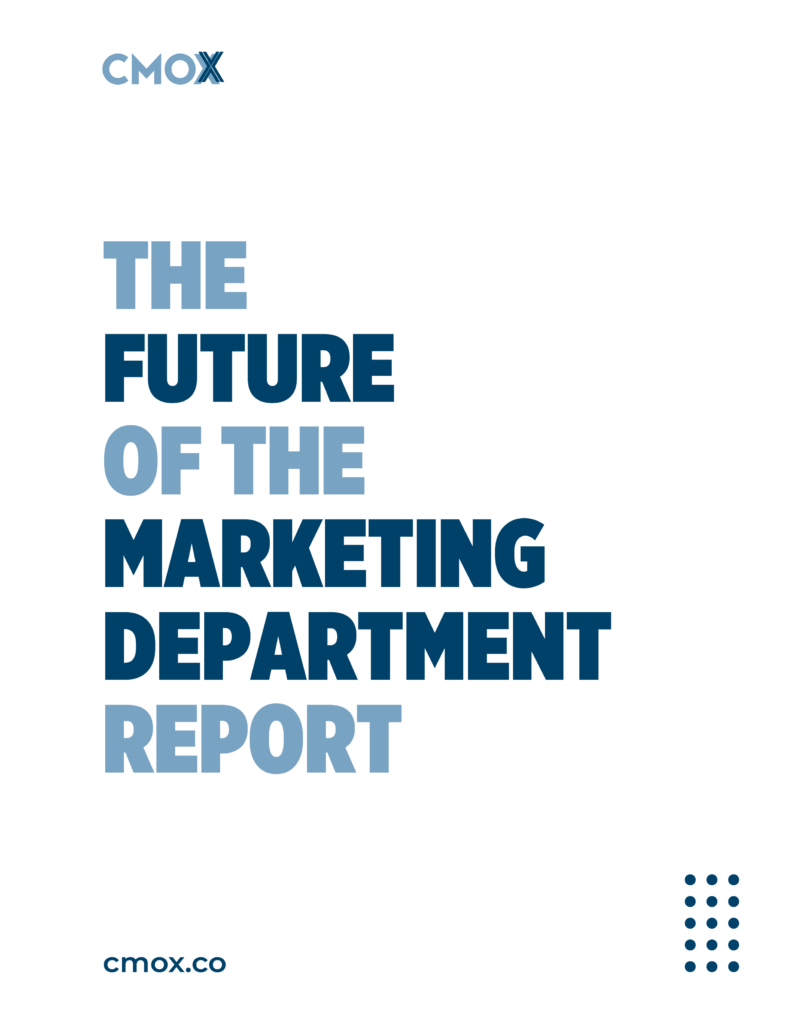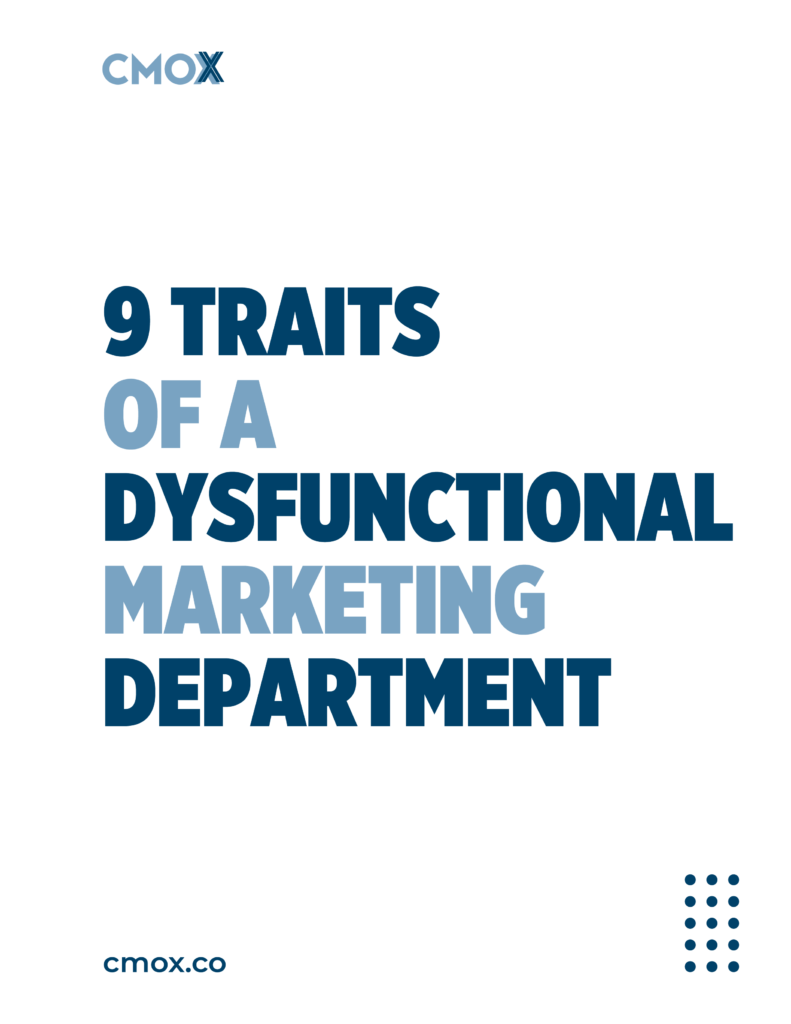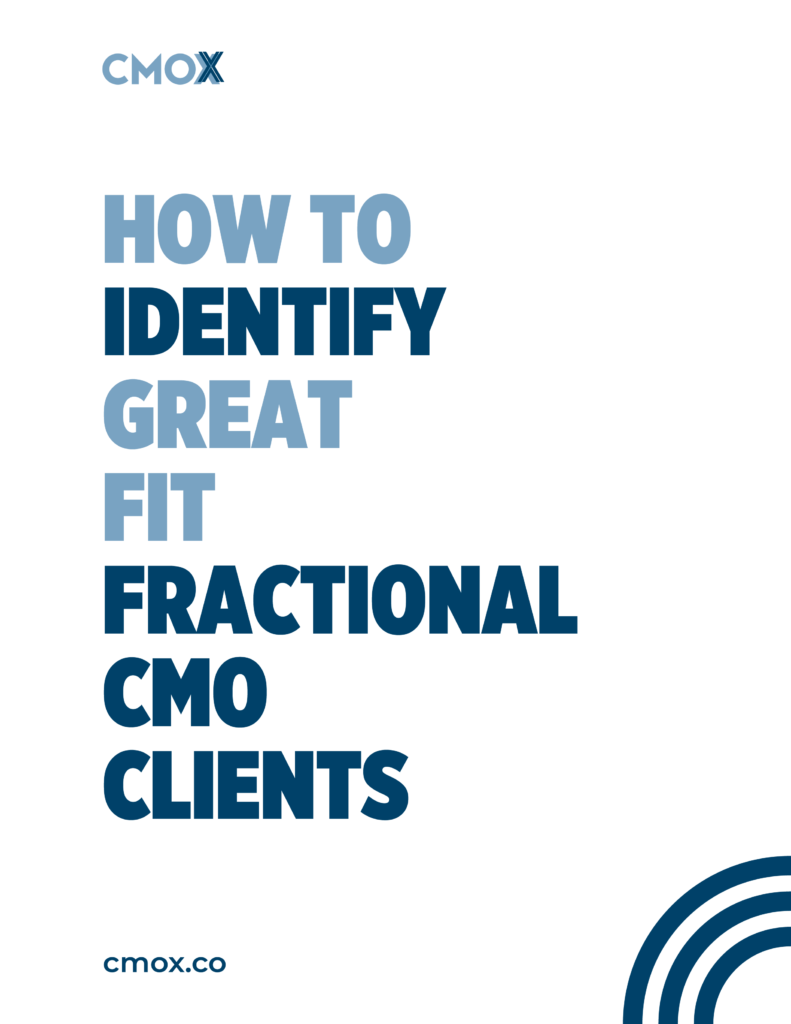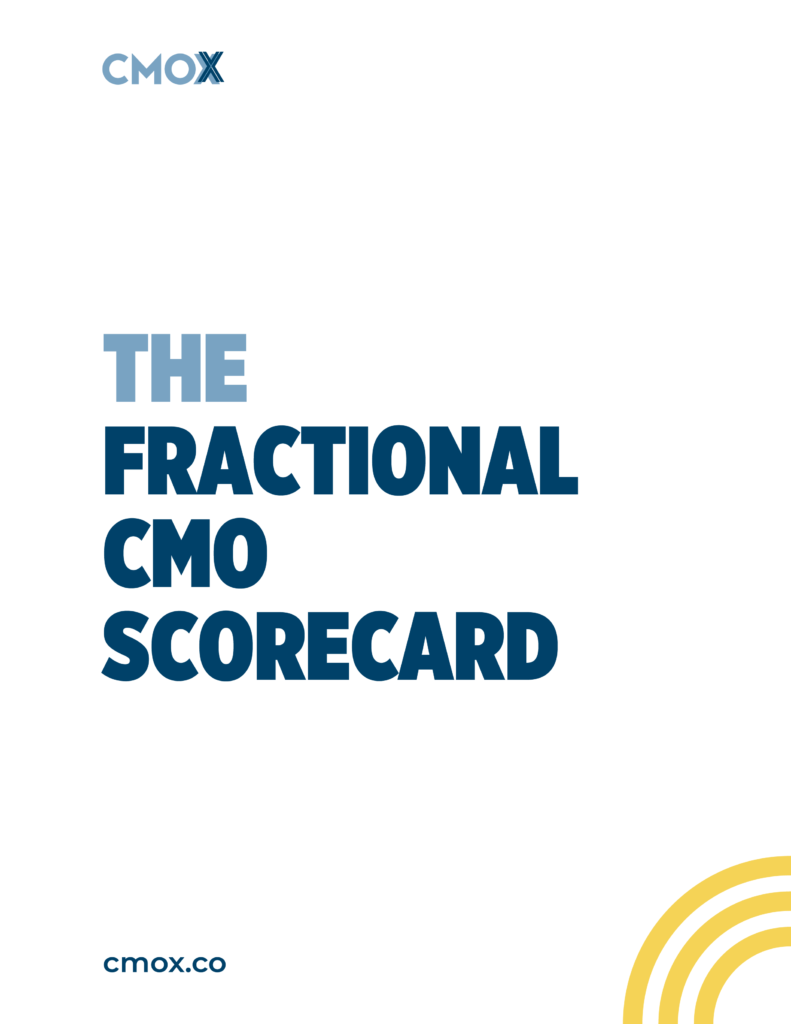Ep #111: How to Prepare for Your Best Year Yet

In this episode of The Fractional CMO Show, Casey Stanton lays down a wake-up call for marketers entering 2026. He explores the biggest trends reshaping the industry – from the over-adoption of AI and reliance on “black box” tools, to the fast-fashion era of SaaS and the rise of fractional leadership. Casey warns against outsourcing your thinking to AI, chasing shortcuts, or splitting your focus between a job hunt and fractional work. Instead, he challenges you to commit, pick a niche, and start talking to strangers – because the money you want is in their pockets.
You’ll hear why Q4 is the most important time to build momentum, how to avoid undervaluing your expertise, and why the best Fractional CMOs stop chasing “one trick” solutions and instead build real businesses through grit, clarity, and conviction.

Episode highlights:
In this episode of The Fractional CMO Show, Casey Stanton lays down a wake-up call for marketers entering 2026. He explores the biggest trends reshaping the industry – from the over-adoption of AI and reliance on “black box” tools, to the fast-fashion era of SaaS and the rise of fractional leadership. Casey warns against outsourcing your thinking to AI, chasing shortcuts, or splitting your focus between a job hunt and fractional work. Instead, he challenges you to commit, pick a niche, and start talking to strangers – because the money you want is in their pockets.
You’ll hear why Q4 is the most important time to build momentum, how to avoid undervaluing your expertise, and why the best Fractional CMOs stop chasing “one trick” solutions and instead build real businesses through grit, clarity, and conviction.
🔑 Key Topics Covered:
- The hidden dangers of over-adopting AI in marketing and strategy
- Why “black box” tools can erode your fundamentals
- The fast-fashion SaaS trend – and why most of it is “beautiful garbage”
- The rise of fractional roles across the C-suite
- Why consultants fade but Fractional CMOs stick
- What you must ignore in 2026: seasonality, job reports, and reputation-killing AI shortcuts
- The power of niches and why they make you unforgettable
- Why all the money you want is in strangers’ pockets – and how to go get it
Transcript:
00:00:00 Casey: Marketers of the world. Why do we work hard to solve small problems? Why do we reinvent ourselves and our clients over and over? And why are we giving away marketing strategy for free? With advancements in AI, we’re all seeing the marketing department shrink from the bottom up. And companies need you to serve them as their fractional chief marketing officer. It’s time to solve bigger problems and bring home a bigger paycheck. It’s time to create the lifestyle we deserve and to make a greater impact. This is the Fractional CMO show and I’m Casey Stanton. Join me as we explore this growing industry and learn to solve bigger problems as marketing leaders. The Fractional CMO Show is sponsored by CMOX, the number one company to teach you how to attract, convert, and serve high-paying fractional CMO clients on your terms.
00:00:58 Casey: All right, so who’s this for? This is for fractional CMOs. You already made the commitment. You already jumped in. You’re already a fractional CMO. Awesome. It’s also for marketing agency owners. This is also for experienced marketing employees. There really like the three folks that I think are, you know, poised to do well in marketing. You know who this isn’t for? People who have never done marketing before. People who are in their first couple years of marketing. People who don’t have big wins in marketing. That’s not who this is for, okay? This is for people who have like a pedigree. They came from somewhere. They know this stuff. So, here’s how to make 2026 your best year yet.
00:01:31 Casey: I’m going to run through a number of slides, share a bunch of stuff, and at the end I’m going to open up to Q&A and I can stick around here like I said for about 90 minutes, answer any questions that we have. All right, so let’s just like get right into it. 2026 trends. What are the big trends that I’m seeing? So, the first one is like duh. It’s like AI is everywhere. What does that mean? Well, here’s one big thing that I see as a trend is the over adoption risk of AI for clients, for businesses, for marketers, for everybody. Over adoption is a significant risk. It’s like people believing that AI is the panacea, and it is the one thing that will solve all of their problems.
00:02:20 Casey: And what we find is we saw this certainly I would say in the last 18 months we saw over adoption of AI for the generation of content for SEO. What’s the negative of that is if anyone here works in the SEO space you know that people absolutely screwed their SEO. They just cooked it and it’s this belief like, “Oh, I don’t need a SEO content writer to write this thing because they’re going to charge me 150 bucks for the post or 300 bucks for the blog post or whatever. I’m going to get ChatGPT just to crank out the content.” And it just destroyed their website. There’s like this over adoption risk and reliance on AI to tell us what to do next.
00:02:53 Casey: And companies are doing that. Like our potential clients are doing that, our current clients might be doing that, our employers might be doing that. But also, the risk is on you and your business. You saying, “Oh, I’m just going to ask ChatGPT. I’m going to load in a couple books into NotebookLM and I’m just going to query it and it’s going to tell me what to do.” And it’s fallible. You know that it’s fallible. And when you’re like writing something like you’re writing an email and it does like a little like miss write, whatever, you can fix it.
00:03:24 Casey: But when it convinces you to do something or convinces your client to do something and then they cancel a contract or do something new, and then they commit for the next 6 or 12 months on this thing because the robot told them to. It can be really misguided. And I’m sure we all have stories here of someone that we know that did something dumb with AI. I hobby with some electronic stuff and I was asking ChatGPT something, and it told me to plug these terminals in and I did it and I fried my microcontroller and I was like “Ah! What do I do? Who do I complain to?” And they were just like nobody. ChatGPT was like “It’s your fault ultimately right.” The over adoption and trust in AI is scary and it’s a risk for our clients and it’s a risk for us. The second one is a black box. So, what’s a black box?
00:04:11 Casey: I think there’s great marketing tools that exist, but I look at some great marketers who have built some stuff, and I don’t want to call them out by name, but they’ve built really cool platforms, a lot of copywriting platforms, you know, like great copywriters now have AI tools that like write the copy for you. And it’s not that those are inherently flawed, but there’s this idea of you take an input and there’s a black box and then there’s a valuable output on the other side and if you don’t understand what that black box is like it’s literally an unknown custom GPT you live in a world of abstraction, and you start you stop understanding the… like what’s actually happening and that’s dangerous.
00:04:56 Casey: We live in a world by and large where people live in abstraction. Like if you know HTML that’s an abstraction. If you know JavaScript that’s an abstraction. If you know binary code that’s like the core of actually how programming works. We understand layers of abstraction. The problem that I see with these black boxes. Here’s another black box. Meta ads. If anyone here’s run an ad on meta recently Meta will be like “Thanks for your headline. Here’s five AI generated headlines. Click this button and we’ll test those.” And it’s just like these black boxes feel like shortcuts, but when we don’t understand the fundamentals behind how these shortcuts are developed, we find ourselves in a position of trusting a black box and often getting hoodwinked by the black box into thinking that some better outcomes going to happen because we fail to understand the fundamentals of how marketing works and stay with them.
00:05:50 Casey: It’s so scary. It’s so dangerous that people are doing this. Okay. Next is AI’s replacing labor. Like, duh, right? And this is happening, I think, positively and negatively. So, perfect example in my life, I’m working on a project for a client, and I want to do a little thing. Here’s one of my favorite tricks I do… I like to append first name and email address into a URL that someone clicks so that when they click that and they go to a page, they can get auto registered for like a webinar or they can get auto registered for like an email list or whatever.
00:06:30 Casey: And often times I have to write have written some JavaScript, you know, like a little web hook, something that captures that data. And kind of forever, I would just go on Upwork and find a worker to do it and pay them 20 or 50 or 100 bucks or whatever, and they would do it and it’d be worth it. Now I can get all of that done with AI. Like little snippets of code. I’m not a developer, but I know what I want. And instead of telling a developer and having them tell me, okay, it’ll take 2 weeks before I have time for it, and then it’ll take me probably 5 hours to do it at a cost of 30 bucks an hour, whatever. I can get it done immediately. It’s a big deal.
00:07:04 Casey: So, us as marketers, we’re seeing speed increase. We’re getting more done with AI. Conversely, we’re seeing employers, companies shedding labor in adopting AI. And again, I think this becomes the over adoption risk. So, AI replacing labor for us as marketers can be good, but also it can be really bad. I worked at a company a few years ago, a private equity real estate sponsor and I had a team that I grew to about 13 folks. I could do the same work today with everyone having ChatGPT and Claude probably with like four people maybe five people certainly with like less than half the staff I could get the same outcomes at a much cheaper cost. So, that’s very real right now and there’s a pressure from businesses that they want to see more done with less.
00:07:59 Casey: So, fewer people getting more accomplished with a smaller budget. That’s just where we’re going. Copywriters are seeing this. Instead of writing five emails a month for their fee, they’re writing 20 emails a month for the same fee. Marketing agency owners are seeing the same thing. They’re seeing like instead of like running these ads and being able to get a bill in the normal way, they have to generate multiple times the value to their client because the client expects it because of AI providing labor replacement. And then finally, this last when about like 10 days ago, Sam Altman, who is the CEO of OpenAI, he tweeted that we’re moving into the fast fashion era of SaaS. And I think that that’s incredibly notable right now. What is the fast fashion era of SaaS?
00:08:49 Casey: It’s that SaaS can be cooked up overnight. We can prompt ChatGPT… Chat GPT5… I’ve been having to do some programming stuff just for fun and it’s been doing an incredible job. I’m getting projects that were just like in the back of my mind that I wanted to play with the last couple nights. I’ve just been able to crank them out. And the problem with cranking them out quickly is that I lose the desire and I don’t kind of like build the habit of maintaining this thing. So, I do it, I get the dopamine and I’m done, and I move on. Businesses will do this too. They’ll build a SaaS overnight. Satya Nadella from IBM said that like we’re moving into a future where like CRUD doesn’t matter. CRUD is like it’s a SaaS term for Create, Read, Update, Delete. CRUD.
00:09:38 Casey: So CRUD things are like SaaS. SaaS isn’t inherently technical. There’s a good layout for it and it can make sense with workflows, but generally speaking, it’s like I’m creating a new lead. I’m updating that lead to show that they opened an email. You know, I’m reading that data and I’m deleting it. Like it’s kind of simple. That’s like the CRUD applications. We’ll see people being able to manufacture their own CRUD applications. In you know overnight in a week whatever they can do it with Replit right now they can do it with all sorts of AI coding platforms
00:10:09 Casey: The problem is not going to be the creation of the SaaS the problem is going to be the fit of the SaaS in the market and then the continued support of the SaaS, if a company can spin up a SaaS and they could spin up a website and they can spin up a bunch of marketing copy, is it really a robust company that’s going to last right that’s where we got to watch out for. I think we’re going to see the market get flooded with just garbage, but it will be really beautiful garbage and it will have all of the trappings of great software. And it just won’t exist right behind the hood. It’ll be it’ll be nothing. It’ll be Theranos. So, something to consider. I’ve got more for you. Private equity, they’re needing larger returns from fewer bets. Money is more expensive today than it’s been. If you think of like the height of the COVID response from the government, we saw interest rates just bottom out.
00:11:02 Casey: So, you could borrow money and as long as that money returned a 4% return, a 5% return, you’re making good money. Well, as we see that interest rate continue to rise, private equity who have cash, they certainly have a lot of cash, they’re hesitant to be putting that cash to work ‘cause they need that cash to outperform when they invest it well. So, they need to see larger returns from fewer bets. They’re not so loose on their money. So, I’m not saying that we’re going to see less investment of PE as we move into 2026. But what we are going to see is PE’s greater involvement and PE locking in tighter in the industries that they’re focused on. So, I don’t think you’re going to be seeing as many PE companies that have a smattering of things like software service businesses, restaurants, you know, manufacturing companies all under the same PE roof. Instead, I think you’re going to find more specialized private equity. And with that specialization comes with a better understanding of the implications and the effect of marketing.
00:12:05 Casey: So, I think that is a benefit to you, but also you have to be savvy. You have to be able to talk the talk with private equity for them to be able to take you seriously. Next is I think we’re going to see mass layoffs, just continued. Like why wouldn’t we? We live in a capitalistic society. Like it or not, companies will continue to do layoffs when it makes sense to them financially. And sometimes financially that means just for an earnings report, and it has nothing to do with your ability to deliver as a full-time worker let’s say, I don’t know if this is true or not, but it supports my theory here that during hiring booms major companies like Amazon is going to hire great talent not because they need it but because they don’t want their competitors to get it.
00:12:55 Casey: So, Amazon would rather hire top level software developers and top-level marketers, etc., in order to just steal them away from the potential competition having them. And then they put them on a project and maybe the project works out and maybe they make some money on it, but also when the market turns, it’s bad for everyone.
00:13:13 Casey: So, then layoffs just happen, and all of those people go out into the pool of labor and we saw the recent job reports and right like it looks indicative that that’s going to continue to happen. So, what do these people do? If anyone here has been applying for jobs traditionally, you know that you have to submit somewhere between what 500 and 10,000 job applications to get a job. AI tools that are just doing job applications on behalf of people. It’s like an impossible market. And it’s a lot of front door stuff. And I’m not a front door guy. So, let me tell you what I mean.
00:13:50 Casey: When I was a professor at Tulane University in New Orleans, every class I taught, I always had the best student. They were like on time, they were like type A, they were really smart, they were really good. And you know, they graduated top in their class. No doubt those people had a bright future. But what about everyone else? Like that top student probably is going to get the job if they apply alongside everyone else. Because why wouldn’t you choose the person with the best grades and the best everything? But all those other students needed work too, right? They needed like a job.
00:14:22 Casey: So. You can’t go in the front door traditionally. Like that’s just hard to go in the front door. The front door is like, jobs on Indeed. I’m going to apply and I’m going to pray that I’m going to get through all of the hoops traditionally and get in. You find out you’re going to get interviewed by AI tools. It’s garbage, right? So what do we see happening as a result of this? We see more people reinventing as fractionals. We’re like fractional CMO, CRO, CSO, COO, CFO, like all of the different C-suites. We’re seeing more fractionals. It’s happening.
00:14:52 Casey: Previously, I think we would have seen this just be called like consultants, but I think consulting and fractional CMO work is drastically different. Just real quick, consultants come in with a bag of tricks. They have like their little black book of like, these are the three cool tricks I can perform. They go charge a high fee, they roll in, they do their tricks, and then they’re out of tricks. And then they get their contract ends after what, three months, four months, maybe six months. Consultants by and large don’t stick around for years. There’s edge cases, but by and large, they don’t stick around for years. Fractional CMOs on the other hand, like the ones at CMOx, the ones that I train, they get in, they get embedded in companies and they last for years. It’s a very big difference. So we’re gonna see more fractionals.
00:15:37 Casey: We also are gonna see an increase in companies who will teach you to be fractional. And this is like, this is a weird one that I’m seeing. I’ve seen like all sorts of companies just like pop up on Facebook teaching this stuff. And these people are like, I’m gonna teach you how to be a consultant. I’m gonna teach you how to do this thing. But like they’re coming from some weird background. They’re not in the trenches. They’re not doing the actual work. They’re not actually getting clients themselves. They’re not showing you what’s possible. And they don’t have a track record.
00:16:04 Casey: It’s not just something to like keep an eye out for. You’re going to see more happen in the future of more people doing this stuff. But you gotta look for like their results. All right, so fractional as a term is becoming mainstream. Big one, it’s nice. For years I’ve said we’re early. I still think we’re early. We’re not certainly at the maximum of what I think this market is going to do for us as fractional CMOs. But if you look at folks hiring, we’re seeing actual job posts for fractional CMOs. Like we’re hiring a fractional CMO. That hadn’t really happened until this year. And I anticipate more and more of that happening next year. I think for two reasons, one, because the term is more mainstream and two, because there’s more pressure on the business to get C-suite level strategy and leadership without the cost of a full-time person.
00:16:57 Casey: All right, so those are the big trends that I’m seeing. I wanna talk about three ways that AI can hurt us. This is kind of a big mental model for you and I think it’s really helpful for you to internalize. So the first one is kind of a science fiction scenario. AI takes over the world, becomes sentient and it controls humans. This is the stuff that science fiction is made out of. Like this is what’s going to happen, you know. And maybe that happens at some point. Maybe AI is able to control AI and you know, I mean, we definitely saw with DeepSeek, the Chinese large language model that was developed as a derivative of the content from OpenAI. And it’s a small package and you can run that on Lama, Ollama, locally on your computer, or you can run it on your phone. Like we’re seeing like AI train AI, so we’re there in that way and that’s interesting. If you don’t know what I’m talking about, it doesn’t matter.
00:17:57 Casey: But I don’t know if this is really gonna happen, right? I don’t know if it’s gonna happen. What about scenario number two? A single or multiple actors, like the billionaire class, leverage AI to make people do their bidding and then they can take control of mass populations. Maybe that’s a possibility. It feels like a little bit more likely. We see these large companies that have AI tools, but I don’t know. The more I kind of…
spend time with AI, the more I realize I’m not really worried about AI, like one AI taking over. That’s not really the issue, right? It’s not like ChatGPT is gonna climb to dominance and just like Sam Altman and OpenAI are gonna just like dominate everything. Because I think that there’s novelty to the AIs of Microsoft, like Copilot, because that works inside of their suite or Gemini and how that works. So I think we’re gonna always have like multiple AI tools. I don’t think this scenario is gonna happen. But this one I do.
00:18:58 Casey: People outsourcing too much of their thinking to AI and becoming weak-minded. This is our biggest threat right now, just to let AI think for you. If anyone here uses a calculator and doesn’t do mental math, you know how weak you are at math. That’s easy to swipe from the top right down in your iPhone and go to the calculator and type it in and get your calculation. But it’s not the same as knowing it. And if your life revolved around you knowing it… and it was more complex than like basic arithmetic. Being weak-minded is a really big danger. And this is the thing that I’m seeing happen. This is that over adoption of AI that is scary to me. And I want you to be a little scared of this too. And I want you to check yourself when you’re trying too much to ask AI to do for you. You need to understand how things work and then allowing AI to kind of come in and support you a little bit is helpful. You know, personally, I still don’t use an AI note taker.
00:19:58 Casey: I don’t think that that’s useful for me. I lose the theme when I let an AI note taker take over for me. Are they useful? Yeah. Is it great for someone who’s dyslexic? Absolutely. But would I benefit maybe from having it? I mean, possibly, but I don’t want it because I want to like force myself to learn and do. So I think that’s an important lesson here too. And as we move into 2026, we’re going to see more people just like letting go of their thoughts and their beliefs and letting AI do it. Scary.
00:20:28 Casey: All right. So what can you then ignore for this next year? What can you ignore for 2026? AI commentating on LinkedIn. I saw this this morning. I love Frank Kern. Don’t get me wrong. I think he’s one of the great marketers that’s alive today. He had some Facebook posts and said like, comment if you want it. Some guy writes “9/11 is an inside job.” And then Frank says, “Thanks, check your DMs.” If you’re on LinkedIn commenting with AI… You’re letting go of your personality, your persona, like who you are.
00:21:05 Casey: It’s so dangerous. I was just on LinkedIn last week and I saw a post and someone I knew had an AI comment. How did I know? Because I know him and he doesn’t say that stuff. And he did it with like lowercase letters, so it looked like him. It wasn’t him. I know it wasn’t him. And then the reply to that was an AI reply. So it was an AI comment with an AI reply to it. And it was just like, who’s benefiting from this absolute garbage?
00:21:32 Casey: If you’re doing AI commenting on LinkedIn or Facebook or whatever, I think it’s dangerous. Some people might say, “But Casey, I can like queue up a bunch of comments and then approve them manually.” I think it’s a massive reputation risk. Do it if you want. I don’t do it. I think it’s better not to comment than it is to comment with AI. So what else should you ignore? AI researching, writing, posting content on your behalf. AI researching? Great. AI writing, first draft, okay. AI posting, fine if you’ve approved it. But doing it all in like a one shot, so dangerous. Again, it’s your reputation. What’s that quote? It takes a lifetime to build your reputation, a moment to lose it? This is how you lose your reputation. You just write dumb shit and post it online because AI wrote it for you. It doesn’t make sense. No one trusts that person. You think maybe I look good because I’m posting on LinkedIn with this AI content and like people think I’m smart. No one thinks you’re smart if it’s not like your content, and we can tell right now.
00:22:39 Casey: All right, next up, ignore this. Other fractional CMOs in the same niche as you. Who cares? Here’s the way I see it. You know, someone will come into the accelerator, they’ll say like, I wanna be in this niche, but there’s other fractional CMOs in there. I got go find a niche that there’s no one in. And I just, I think it’s like a misguided thought. Let me tell you why. If you’re married or you have a partner… You have a type, right? Like the people that you dated before them had something in common. You have a type, probably. And maybe your type is just like they bathe, right? Or maybe it’s more specific than that. So you have this type. When you met your partner, you were attracted to them for some reason, despite a bunch of other people in your life that were potentially single and viable mates. You were attracted at one person.
00:23:36 Casey: Something made them different. That difference is what you provide as a fractional CMO. And if you live in that story of who you are, there is no competition for you. Like you can live in a world where there’s no competition despite other people trying to vie for similar clients as you, but like they’re not your competition because you’re a Black woman from Detroit, because you’re a gay man from Oklahoma, right? Like you are different just because of who you are. Because you’re a white guy in Palo Alto. It doesn’t matter, right? But if you stand in your story and who you are, you’re unique and people want that uniqueness. They’re gonna be attracted to that and your skillset and everything else and your ability to perform and everything. But I don’t ever see myself as being competitive to anybody else. If someone else joins as a fractional CMO and they wanna target a similar industry as me, I think, well, that’s cool. That’s cool that someone else is betting.
00:24:32 Casey: Like professionally betting their livelihood on something that I’m betting on must mean I’m onto something. I see it as a positive sign, not as any kind of constraint. Cause like after all, how many clients do you need as a fractional CMO? Three to five. If you have three to five people paying you three to fifteen thousand dollars a month or more, you’re killing it. You’re killing it. Three to five. It doesn’t matter what happens in the macro market. If you have three to five clients, you can find three to five clients that are doing well. It doesn’t matter. All right. Next.
00:25:07 Casey: Ignore chasing nine to five jobs. That’s it. Like either choose to be an employee. That’s fine with me. Like you have my complete permission to go apply to jobs and be an employee. Great. But don’t do that. And then half-ass being a fractional CMO. Choose one or the other whole ass, whichever one you choose. Right? Be a fractional CMO, be an employee. Just do one of them. You gain no benefit from Dipping your toe in the water, don’t do it. You can be a full-time, like let’s say VP of marketing, marketing exec, whatever. And you can say, all right, I’m gonna go win a fractional CMO client on the side, but my commitment is over time, I’m like going that way. That’s very different than saying, all right, today I’m going to split my focus and I’m gonna apply for fifty jobs as a full-time employee and then I’m gonna go prospect to be a fractional CMO. You can’t do that.
00:25:59 Casey: That’s like running after two things at the same time, you’re gonna miss both. So just choose, go the employee route, go the fractional CMO route. I think the fractional CMO route is just more novel and interesting. I’m not saying that you can’t make a great impact for a client, you know, an employer as a nine to five employee. The problem is, is that you can get laid off. And as a fractional CMO, you can get fired or your contract can get ended or whatever, that can happen too. But when you have…two or three or four or five clients and you lose one, it’s a whole lot less of an impact on your income than having one employer and losing that. And then going back into that pool of all the other unemployed and fighting like hell for a job. So you have to just choose, choose one path or the other. And if you choose the employee path, Godspeed, if you choose the fractional CMO path, just go all in, just be hungry and go after it.
00:26:50 Casey: There’s people that have this one trick philosophy and it, as a marketer, you have to be able to see through this stuff. It’s like a tale as old as time, right? Like it’s a great thing to do in marketing. Russell Brunson, great marketer, kind of famously said with ClickFunnels, you’re one funnel away from whatever. It’s just like, no, you’re not. You’re not one funnel away. You’re more than one funnel away. You’re a lot away possibly.
00:27:19 Casey: You don’t know who you’re talking to. You don’t know how to sell them. You don’t know how to collect payment. You don’t know how to actually service them. You don’t know how to keep the contract around. You don’t know how to get people to listen to you and do what you say because you’re the leader. You don’t know that stuff. So you got to learn that stuff. It’s not a trick. It’s actual maturation in your career. The difference here is me saying to you, eh, you should probably eat like 150 to 200 grams of protein a day versus saying…I’ve got a shake that if you drink this once every week, you’re gonna lose a hundred pounds in ten days. It’s like the crash diet versus the sustainable growth of strength and body recomposition. We know inherently that shortcuts don’t work. I’m here to say to you, there’s no shortcut as a fractional CMO.
00:28:08 Casey: Like you’re not one trick away. You’re just a good process away and following it and executing and working with clients and making sure you don’t misstep and…be really porous in your boundaries and allow the client just to dump a bunch of extra work on you. Man, do I see that happen to folks. They say, oh, Casey, once I get a fractional CMO client, I’ll join the accelerator. And they get their client and they join. And the client just like walks all over them and underpays them. And it’s because the fractional CMO never stood in their power to demand the fees that they were worthy of and create a contractual relationship where they were doing their best work. They were instead feeling like they were kind of like…begging for the money every month.
00:28:43 Casey: It’s very weird and it’s not healthy and you don’t want to be in that relationship. No one wants to be in that relationship. Those same CMOs then say things like, man, I’m over delivering for my client and they’re not grateful. Yet the client is just like, we’re executing this contract that you wrote that was open-ended, that didn’t have any real language in it, that limited the scope of what you do. So they’re getting what they paid for and then the CMO is frustrated. So there’s no trick here. It’s just maturation.
00:29:12 Casey: You want to be able to do a 400 pound deadlift? Well, you probably should start with just the bar and get your technique right and then grow over time. Doesn’t happen overnight. Though, if you are an agency owner or you’re well connected or you’ve sold high ticket before, you tend to, when folks like you join the accelerator, you tend to make bigger sales faster. That’s true. But everyone is still on the same maturation path to grow a real business. That’s what this is. It’s a real business that you want to.
00:29:44 Casey: Seasonality, ignore it. Here’s the rule. When we look ahead, we never talk about seasonality. If your sales are down or you’re prospecting to talk to fractional CMO clients right now, you have an agency, numbers are down, whatever, you are not allowed to say it’s seasonality. You’re not allowed to say, it’s back to school week. You can’t say that stuff. You got to be mad and you got to fight and you got to work hard to win every single day. And then…
00:30:10 Casey: Unlike your quarterly review, you can look back and be like, oh, wow, if we look at that two week stretch, it really sucked. We can match that up probably to some seasonality. Like you can make sense of it in the past, but in the present, you got to fight like hell, no matter what’s happening. It’s folks that say stuff to me like, oh, Casey, it’s the summer. People aren’t buying. Bullshit. In the accelerator, members are winning big clients in the summer. Absolutely winning big clients. So it’s not about…
00:30:40 Casey: It’s not about seasonality. It’s not about like coming up with an excuse why you can’t be successful. It’s instead just moving forward and fighting like hell to win. All right, next. Ignore the job reports from the government. Who cares? I mean, maybe there’s like a bigger kind of understanding that you have around macroeconomics and what that means and maybe thoughts about your family, whatever. Okay. But do the job reports from the government actually matter to you as in your ability to be a fractional CMO? No.
00:31:10 Casey: They don’t matter. Nothing matters in like the global economic space. Barring some things like you say, Casey, oh, I want to be in this space. I want to be in a space where my clients tend to take on a lot of bank debt. And when interest rates are high, bank debt is too expensive. And for that reason, the business slows down. Fair, right? We’re going to slow down. Maybe working with those clients and shift a little bit. Real estate is another version of like a very cyclical business when rates are low.
00:31:40 Casey: Business is booming when rates are high, business is low. Outside of that kind of stuff, generally speaking, business goes on as usual. Business just keeps moving. We see that these small things, like just before Trump got elected, the market kind of slowed down a bit because we were like, what’s going to happen? But if you look, it didn’t really matter who became president by and large for the entire economy immediately, like in December, you know. Like after the election in November, in December, things were like, we’re back to normal. But people did pause like, what’s going to happen? We don’t know. But it kind of didn’t matter what the outcome was. The show just went on. So just some considerations here, like business is going to business. Wealthy people are going to continue to spend money. Business owners are going to continue to grow. If we look at Warren Buffett, one of his greatest, I think, insights was like when businesses, when the market’s down, buy.
00:32:36 Casey: Like when the market’s down, buy, everyone’s selling, you buy, sit on it, hold it, have a long-term appreciation for what’s going to happen. That’s where you want to be here. All right, above all, like what do you walk away with? Stop talking, commit, focus, and then do so many reps that it becomes unreasonable to not be successful. So important. If you talk to enough strangers… And you pitch this enough times, it would be unreasonable for you not to be successful. Right? If you have like a proven strategy for how this works and you keep doing it, it’s unreasonable for you not to be successful. A lot of people are saying like, oh, I want to start it. Oh, I’m going to dabble. Oh, I’m reading the book. Oh, I’m going to listen to the podcast, whatever. Just like you got to stop talking and just commit. Go be an employee full time. Awesome. Godspeed. Go be a fractional CMO. Commit. Do it. One hundred percent.
00:33:32 Casey: So what should you be doing in Q4 to build momentum? Cause we’re kind of getting close to Q4, it’s coming up. So commit to a niche, niche, niche, niche. I don’t know. I kind of go back and forth. You got to commit to one. Why do you commit to a niche? It’s not to preclude you from working outside of the niche, but it’s to understand the niche well enough that people who talk to you from that niche see you as the expert. Let me say this a different way.
00:33:59 Casey: If you say, Casey, own, like my pedigree is in working with HR software. And I like to, and I know how to sell into businesses, B2B sales of HR software. That’s my niche. Like, awesome. That’s a cool niche. Go for it. Someone comes to you and they say, hey, I’ve got some SaaS that is for bus drivers. Can you help us sell it? Can you be our fractional CMO? The answer is like, yeah, you probably can be. And it’s worth talking to that person and having a conversation and potentially working with them, even though they’re outside of your niche.
00:34:29 Casey: Because the way that you solve problems is going to be likely very similar. The sales cycle length is probably reasonably similar. It’s probably relatively high ticket. There’s probably like a sales team, there’s demos, there’s all that kind of stuff. You know how to do it. Yet when you’re talking online about what you do and who you serve, you got to choose a niche and you got to just focus your conversation there because people will see you as the expert. If you look at any of your favorite YouTube channels, the best of them…are limited in their scope. Then it’s not because that’s the only thing the person talks about or the only thing the person does. I follow a guy on YouTube and he did the whole like a video a day for 365 days. And he said after the first year, he found the videos that were the best performers and he transformed his channel just to talk about that subject. And now that’s exclusively the subject he talks about. That’s what you have to do is like exclusively talk about…
00:35:27 Casey: one niche, one problem type that you solve and be the person that people think of for that. Let me tell you, someone comes to CMOX and they say, hey, Casey, or they talk to Melissa on my team. Hey, Melissa, I’ve got a business that does XYZ. I’d like to see if I could hire one of your CMOs. So Melissa then has a call with me and some of the folks on my team and says, who do we have? Who’s a good fit? And it’s really hard to find someone on the list, you know, of our members who’s like,
00:35:54 Casey: I help businesses of kind of any size based kind of anywhere in the world with any revenue who just want to like sell stuff. You know, if like that’s their niche, I would never say like, oh, this prospective company should interview that person. Instead, I looked down my list and I’m like, oh, that person is selling cannabis stuff. Like private label cannabis. Okay, cool. We’ve got these members that specifically talked about cannabis and like controlled substances like alcohol and wine. Like those are the ones that we introduced them to. So the niche helps people like me and also like the connectors in your life know the problem you’re the right solution for. When you don’t have a niche, no one knows where to put you.
00:36:33 Casey: No one knows who to introduce you to. It’s just like too much of a cognitive load for them.And a real risk here is the nerdy folks here. Like you tend to have like an agency background. You’ve kind of been everywhere. You know how everything works. You’re really smart. You enjoy jumping from weird project to weird project to weird project. You’ll do a book launch here and a website launch here and a rebranding there and rebuilding someone’s CRM here. Like you’re enjoying all of that stuff. You folks are some of the hardest to contain to a niche because you want the dopamine of everything.
00:37:09 Casey: The problem of that is people just don’t know what you’re good at or great at, and then they just don’t pass business your way. So you have to focus on a niche. And if you focus on it and you get it tight, people will want to share that with others. All right, next is talking to strangers. This is where the money is. Like literally all the money that you want in your life is in someone else’s pocket. And the only way you can get that in your pocket is to have a conversation with them and provide a value exchange. I will do this thing in exchange for that thing.
00:37:38 Casey: That’s what you gotta do. The money is in the stranger’s pockets. If you don’t have the money that you want, if you don’t have the pipeline that you want, if you don’t have the freedom that you want, the issue is you’re not talking to enough strangers and you’re not making enough offers. What’s an offer? An offer is to say, literally this line, do you mind if I share how I think I might be able to help? That’s the start of the offer. Do you mind if I share how I might be able to help? You have a call with someone, you meet someone for coffee, you’re on the airplane next to someone, whatever, and you transition with that magic line. Do you mind if I share how I might be able to help? That’s you making an offer. Then the offer is very clear. This is what I do, these are the problems I solve, this is my fee. This is something that I think is really important to recognize too. You have a fee. Go to a high-end retailer, whatever you want.
00:38:32 Casey: You’re a car person, go to a high end car place. You’re a jewelry person, go to a end jewelry person. You like handbags, go to a high end handbag place, whatever. Go somewhere high end, like the top one. You know the brand, like just think of it. You got it, right? Go there. And I dare you to check something out and ask them for a discount. Right? They’re not going to give you a discount. The price for that Maserati is this. The price for that… Patek Philippe watch is this. The price for that handbag is this. That’s the price. If you want a discount, you can go next door. If you want a discount, you can go to the Toyota dealership and ask them, right? You have a price that you set for your services and you’re shopping for you to buy the client that you want. That’s going to pay you that price. You set the price. You don’t bend on that. That’s the price for the service. It’s a totally different mentality than most folks have, which is, hmm.
00:39:27 Casey: How do I roll a package custom for this person and what do I charge and what makes sense? It’s like, no, you just have a fee and you shop for the right client. The only way you’re gonna get that fee paid is if you talk to enough strangers and find enough problems that are big enough to reward you with that fee. It’s just, it’s a mental shift. So I hope you’re getting that one. All right, Q4 is the best time to build your practice. Why?
00:39:55 Casey: Cause this is when businesses are doing their final consideration for the year. Here’s two things that happened this year for businesses. One banner year crushed it. And they’re like, we’re ready to level up our marketing. Something happened. Maybe I worked with a company that was in the private equity space and they had some of their acquisitions go for sale and they had some others that were scheduled the following year. So in Q4, they were like, we just had a nice exit. We got a couple extra million in cashflow. We know next year if things keep up, we’ll have a lot of extra money, we’re going to bring in a marketing leader who can drive us to the next level. Right? That’s why they hired me. So that’s one way.
00:40:34 Casey: The other thing is a company could be just driving forward with a full-time CMO or a marketing team or their leveraging agencies or whatever. And, maybe not. They have like no marketing and they’re just getting towards the end of the year and they’re like, man, we didn’t hit our mark. We had a bad year. Like this was not good, which should have been better than this. Like It’s not an election year. It’s not a pandemic, know, major pandemic influx year. Why didn’t we have a good year? Well, it’s probably a marketing issue. Then they’re to look for you. That happens in Q4. There’s like a bell curve that happens. Q4, Q1, major hiring happens. That doesn’t mean hiring doesn’t happen recently, because it certainly does. I’ll share with you just some wins that happened that I heard about yesterday from some members.
00:41:24 Casey: So people are still winning, but… Like if you’re going to show up and start working and building your practice, do it now so that you can get that Q4 momentum and that Q1 momentum. And that’ll set you up for the whole year ahead. I’ll tell you, last year, I decided to start taking on fractional CMO clients. Again, I wrote this book, can you see it? Find Your CMO. And I took about a year to write it, like 11 months. And after I was done with it, I took a couple of weeks. I was just like, all right, what am I gonna do? All right, I wanna get back in. I wanna win some clients.
00:41:53 Casey: So for me, that was late October and I won clients in November and December and in January. Right? Like that was the time I was like, either I do it now or I’m going to have to work harder in the summer to make it happen. So I landed great clients and I’ve kept them right all year so far. So I’m in long multi-year contracts too, or I’m paid upside on exit. So these are some wins from yesterday. Like literally yesterday, I held a training yesterday for our members. did like It was a 90 minute training and then I just stuck around. I think I was on for two hours, 15 minutes, just answering any questions. And a Canadian member, she shared that she landed her first $10,000 month client. That’s Canadian dollars, but 10 grand a month. Awesome for her. She’s in her third month, maybe in the accelerator. Another member, he’s in North Carolina. He landed his first $10,000 month client. And then another Canadian member, she landed her first $10,000 per month client with a two month commitment.
00:42:51 Casey: So the first one was, I think, a minimum of a three or six month commitment. And the second one was a two month commitment with option for renewal. That was just yesterday. Like we started off the call, said, hey, anyone have any wins to share? And boom, these just rolled in. So pretty cool to see. And that’s like the, this is the summer. Like this is when people are going to the beach. This is when kids are out of school. This is back to school. This is empty nest. It’s like the weird time in the year. And people are still winning what I would consider to be like strong clients.
00:43:20 Casey: 10 grand a month is awesome. What if you had two of those, three of those, right? You wouldn’t have five of these, because these take maybe 10-ish hours a week. So you wouldn’t, I don’t think you’d want to work 50 hours a week, but if you were aiming for like that 32, 35 hours a week, you’d do like two to three engaged and a couple advisor. So a little bit about me, kind of like what I’m doing here. I keep fighting in the game too. I’ve been closing larger and larger clients with longer term commitments.
00:43:48 Casey: I’m shopping for, like, my best clients and I get a cut of the upside at exit. I continue to fight and win clients at higher rates than anyone else in the industry. I feel a pressure, right? Like, I’ve got to perform and like innovate and find new ways to sell bigger things and get more upside – and that’s what I’ve been doing. And then I share these details with folks inside of boardroom. They get to see what’s working right now. Remember in the accelerator, we have three phases. You join, you get sales ready as quickly as possible. Some people, they wanna take a couple of weeks – I don’t like that. I think you can do it in like 10 days. This is like, what are you selling? Who are you selling it to? How do you sell it? How do you collect payment? What does your agreement look like? What are you doing the first 30 days with the client? What do you do immediately after signing? All that stuff. I want you to learn that fast, and then you’re on the road to 10K. I want you to build $10,000 a month in recurring business as quickly as possible – and once you’re there, boom, you’re in boardroom.
00:44:43 Casey: So these three members, they got today an invitation into boardroom. Boardroom is a WhatsApp chat with me, with all the other members that are just crushing it. We talk… I don’t know. I mean, some weeks, seven days a week, probably most four days a week, someone’s always like messaging something. “I got this problem with a client just today.” Just before the call, someone said, “I’ve got this great prospect and like this thing happened and what do I do? How do I position myself? ” And they’re playing a little bit more chess than they are just kind of like…looking for their first client, right? They’re positioning themselves, because if you position yourself just right, it can take you from a $5,000 gig to a $15,000 recurring gig with upside, right? It’s all about that little positioning. Anyone who joins gets unlimited support from me for deal making, like how to make a deal. We also just had a member, she signed with one of her clients to get a massive cut of upside that will absolutely put in her pocket.
00:45:46 Casey: I think if things just go absolutely downhill, in two years she’ll make an extra quarter million dollars – that’s if things are really bad, and if things are really good, maybe she makes 5 million. I think she lands probably somewhere around 2 million. That’s what I would bet on if I was her. Like, it seems like a $2 million outcome for her in two years. It’s amazing, and she can do that because she’s a fractional CMO following this process. So I want you to know, I’m not like a guru on a mountain. I’m not like a guy who’s just like, “I’ve done it before and you should just like, listen to me.” I’m a guy in the trenches, breaching past the walls and giving you a map to get to my level faster without the scars. When someone joins the accelerator and they sell their first $10,000 a month client, knowing that I sold mine at 7,500 but they sold theirs at 10,000, I’d love it. And they’re doing it faster than I did. And then folks are selling at 12,000 with like upside, a percentage of revenue from marketing.
00:46:42 Casey: Their revenue that they’re making for their clients is massive and they’re doing it with a lot of leverage. So the question is, do you want my help in building and scaling your fractional CMO practice? Before you answer that, just answer, just let me show you this. A couple notes here. This person, they closed a $16,000 a month engaged client. This person got a $10,000 month client. This member, she had a dream. She’s one of these people afflicted with a single gray hair or more, which is really hard if you have gray hair to get a job in today’s market, right? People want like the young people who are cheaper. Well, she’s not as young as she once was, but she wanted to have an Airstream and get a beautiful truck and drive around the country and like, live that life – and she did it. And if you know anything about Airstreams and full-size Ford pickup trucks, that’s not cheap to do. Right? That’s freedom for folks.
00:47:37 Casey: Daphne said that, you know, if you have, make one sale, you’ll get your return on your investment at CMOX. Sam kind of figured out who he was again, his last reinvention. He like knows who he is. Sam’s got a great story, he was a great software developer and realized really, he’s just a really great marketer behind it all. And Becky realizing that you don’t actually have to know everything to be a great fractional CMO. Like you have to know like who you’re going after, how to sell, how to position yourself, how to take payment, how to service them. But you don’t have to know every permutation of everything in marketing. I don’t know. TikTok shops – I don’t know it at all. Right, I don’t know some of these things that are working right now in different industries. The cool thing is being a fractional CMO, I can bring those experts in and the client pays them. And then those people just like share their knowledge and then everyone gets smarter. So you don’t have to be the one person that knows everything. You just have to be the leader and the strategist. Implementation, someone else can do that.
00:48:33 Casey: And honestly, half the strategy I can get from other people. Alright, so the question for you is: What’s one client worth to you? As I say that our members sell clients between 3,000 a month and 15,000 a month or more, maybe with upside. I just want you to write in the chat right now, what’s your number? If you sold one client, where do you think you’d land? Are you like, “Eh, I’m a little timid, I’ve never done anything like this before. Man, if I had one $4,000 a month client, I’d be thrilled.” Is that where you’re at? Or are you thinking, “No, Casey, like I’m a badass. I’ve been in here before. I’ve done this work. I’m an agency owner. I’ve been giving away marketing strategy for free for years. If I just position myself right and have a good process to follow, maybe I land a client at 15 grand a month.” Where do think you are? I really want to see you in the chat. Just write in your number. We got four at 5,000, Claudio, sweet. Yeah, Claudio, I don’t know, man. You’re an agency owner. I think you could probably push that up. 4,000, Jerry, okay, cool. 4,000, couple of 4,000s here. Chintan, you’re saying 10 to 15,000, awesome. Carly, great, I have one now at 7,000 a month and would like to bump up. Yeah, sweet.
00:49:46 Casey: So I always think like, this happens like without failure. When a member lands a client, I always say, “Don’t let the price be the reason the client says no.” I want someone not to work with you because they don’t like you, they don’t trust you, they don’t like your logo. I want that to be the reason or they don’t think you can help them, not because your price was too high. So your first sale, just get it. The price won’t be what you want it to be. Fine, just get the damn sale, right? Once you have that, every single person without failure, I can say that like on the record, hand on the Bible, everyone says, “I can’t believe I only charged that rate.” And I say, “What would you charge next time?” And everyone says at least a thousand more, 2000 more, some people 50% more, some people double. I had a woman come in and she was like, “I don’t know, I just, two grand a month. I feel like this is what I’m worth.” I was like, “Sell it, do it.”
00:50:38 Casey: She gets it. I was like, “What do think for the next one?” She’s like, “Four, for sure.” I was like, “What do think for the next one?” She’s like, “7,500.” It’s like, great. So she’s doing the same work for all three clients, but it’s her belief system and what she thinks she’s worth. And maybe in some ways she is finding better clients along the way too. So Caitlin, you’re saying 10 to 20K, 20K is like…that’s some Donkey Kong stuff. You know, that’s big. I love it. Awesome. Scott, you got the confidence of two at 15K. I hope 15K, two at 15 bucks, dude. I’ll hire you today and throw you on a couple of projects. And you’re saying 4,500, cool. If it’s three to 5K, I think that that should be in the advisor role. Advisor is where you’re showing up for one call every two weeks and you’re doing quarterly planning. Call it advisor.
00:51:24 Casey: I wrote about that in my first book, “The Fractional CMO Method”. Sorry, I have a cat sleeping on it. Sorry, bud. That’s The Fractional CMO Method. I write about like those different service levels. So three to five grand a month is for the advisor level, and then five to 15K a month or more is for the engaged level. And the better you are, the more outcome you can produce, the higher your rates can be. I wanna just say one last thing on this, which is there’s no meritocracy, excuse me, we live in a meritocracy here, not in some kind of like entitlement. And it’s weird, cause I like a little entitlement. I like when someone rolls into the accelerator and they’re just the kind of person who’s like, “I’m worth it. I’m worth it.” They just have this sense of worth, and where did it come from? Maybe years in the trenches, maybe they have a brain injury and they think they’re better than everyone else. I don’t know, right? Maybe their parents raised them to have a really significant sense of self-confidence.
00:52:23 Casey: I don’t know what it is, but the way that they appear is very confident and very like worthy of high fees. Those people tend to land clients at higher fees than people who have lower visions of themselves, but those people with those lower visions of themselves tend to prove to themselves through meritocracy. I landed that client at 2K, boom, next one 4K, next one 7,500, next one 10K. They’re gonna like raise that over time, so it kind of depends on where you are – and again, that’s why there’s not like one trick here. You’re not like one offer away. That’s not what this is. It’s really kind of overcoming internal stuff so you can have confidence in selling. If you’re not kicking your legs under the desk when you share the cost to work with you because you’re a little nervous, because it feels a little crazy, you’re probably not pushing yourself hard enough.
00:53:14 Casey: That’s like where you wanna be is like that level of discomfort, and clients will only say yes to you if they believe you can help them. My favorite thing to do is when I talk to a prospective client and I share my fees. Like, certainly like I want to work with them right now I want them to pay me. But when I share my fee, if they say this one line to me, it’s just like, “It’s over.” That one line is, “Oh yeah, that makes sense.” So I share my price and they’re like, “Yeah, that makes sense.” Like they’re not questioning it. And then they’re saying, “Can we afford it? Is now the right time?” You know, whatever. But when I share my fee and they say, “Yes, that makes sense.” Like, “I agree with you, that should be your fee.” It’s just a win. You get there as you build more confidence and you share your prices and people are like, “Yeah, that makes sense.” Not all of them can afford it. Sometimes the CEO, she’s going on maternity leave and she’s going to be out for the next few months and she doesn’t want to hire any C-suite until she’s back, and maybe she’s a different person after the baby comes and she doesn’t even want to hire you.
00:54:18 Casey: That can happen, yet you want to get that “Yeah, that makes sense.” Because when you have that, you know you’re on the right path – and then it’s just about reps and talking to more strangers. And that’s when you’re going to find your perfect fit client. And this isn’t even encompassing what’s possible with upside. Upside is when you go work with a client and then you get part of what you make them. So you make that extra money and then they pay you a percentage of that. Totally possible. You should always get paid upfront for the first month, always. But then after that, having upside is awesome. There’s a lot of psychology to that, happy to share at some other point. Alright, so if you want my help, here’s how you do it. You just book a call with my team. We cover the cost of the call, so there’s no cost to you for it.
00:55:00 Casey: You book it, you’ll talk to Justin. He’s a great guy, he’s been working with me for a few years. He’ll ask you a couple of questions to see if we think we can help you and to see if you’ve got really what it takes. If you have the experience, if you have the mindset for it, if you’re the kind of person who’s gonna fight and win here. If you think this is like Netflix where you just like show up and press play and just like lay back, like that’s not it. You got to like do the work. But if you want our help, if you want to be in community of a ton of other people who are doing it that are winning every week, that are doing hard stuff for their clients and making big outcomes and being really proud of their work. I mean, there’s nothing like the CMOX accelerator. It is awesome, so go ahead and book a call in with my team right now. I’ll just drop the link into the chat. cmox.com/call. There it is for you. Just book in a call. Book in a call with Justin, and we’ll chat with you and see if you’ve got what it takes. And then if you do, we’ll pass you on to John or Melissa on my team. Both have worked with me for years. John’s been with me… Shoot, I don’t know, five years and Melissa is my wife’s sister. She’s my sister-in-law. So it’s kind of a family business and she’s been with me for a few years and they know what it takes to be a great fractional CMO. And they’ll be able to really kind of ask you questions and kind of interrogate you and then turn the call over to you and let you ask any questions you want. So that’s what we got going on. I’d love for you to book the call.
00:56:20 Casey: Thank you for sticking around for the full episode. As you know, learners are earners, but you’ve got to take action on what you heard today. For more information and show notes, visit fractionalcmoshow.com. If you’d like me to answer your questions on an upcoming episode, you can share your question at fractionalcmoshow.com. And last, please hit the like and subscribe button so that I know that this content is helpful to you. Alright, go get them.
Join Our Community
We are excited to announce the Fractional CMO Community Facebook Group. This aims to be a place where Fractional CMOs or marketers considering becoming a Fractional CMO can connect and share ideas.
Locations CMOx® serves
- New York
- Philadelphia
- Los Angeles
- San Francisco
- Chicago
- Houston
- Dallas
- Austin
- Miami
- Atlanta
- Denver
- Boston
- San Diego
- Seattle
- Portland
- Minneapolis
- Milwaukee
- Detroit
- Phoenix
- Washington D.C.
- St. Louis
- Toronto
